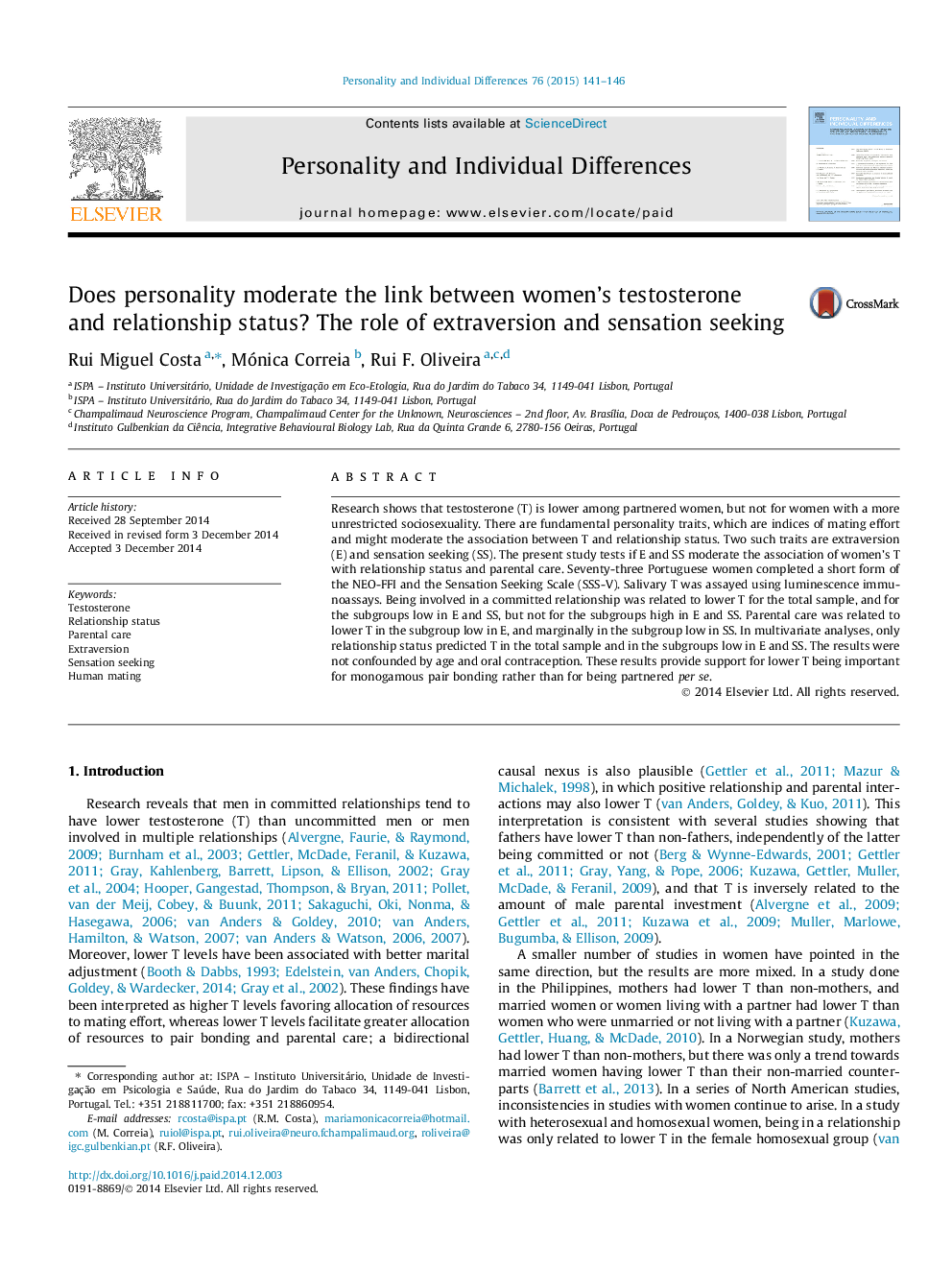| Article ID | Journal | Published Year | Pages | File Type |
|---|---|---|---|---|
| 7251688 | Personality and Individual Differences | 2015 | 6 Pages |
Abstract
Research shows that testosterone (T) is lower among partnered women, but not for women with a more unrestricted sociosexuality. There are fundamental personality traits, which are indices of mating effort and might moderate the association between T and relationship status. Two such traits are extraversion (E) and sensation seeking (SS). The present study tests if E and SS moderate the association of women's T with relationship status and parental care. Seventy-three Portuguese women completed a short form of the NEO-FFI and the Sensation Seeking Scale (SSS-V). Salivary T was assayed using luminescence immunoassays. Being involved in a committed relationship was related to lower T for the total sample, and for the subgroups low in E and SS, but not for the subgroups high in E and SS. Parental care was related to lower T in the subgroup low in E, and marginally in the subgroup low in SS. In multivariate analyses, only relationship status predicted T in the total sample and in the subgroups low in E and SS. The results were not confounded by age and oral contraception. These results provide support for lower T being important for monogamous pair bonding rather than for being partnered per se.
Related Topics
Life Sciences
Neuroscience
Behavioral Neuroscience
Authors
Rui Miguel Costa, Mónica Correia, Rui F. Oliveira,
